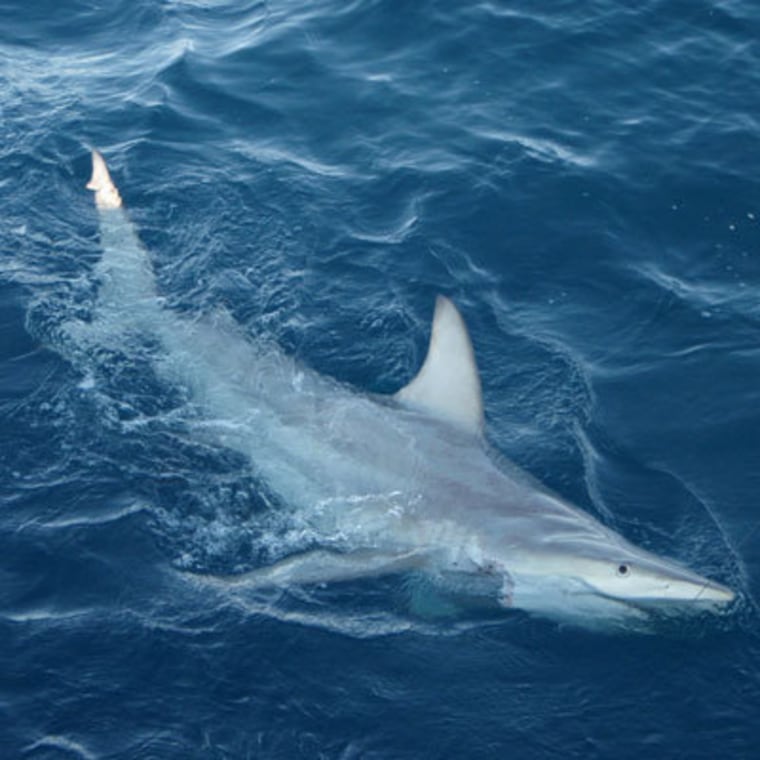
Hybrid sharks have been discovered swimming in the waters off Australia's east coast. The finding may be driven by climate change, a research team says, suggesting such discoveries could be more common in the future.
The hybridization is between the Australian black tip shark which favors tropical waters and the larger, common black tip shark, which favors sub-tropical and temperate waters.
While the distribution for the genetically distinct species overlaps along the northern and eastern Australian coastline, the finding that they mated and produced offspring is unprecedented, according to the discovery team from the University of Queensland.
"To actually find something like this and prove it genetically is unprecedented," Bob Hueter, director of the Center for Shark Research at the Mote Marine Laboratory in Sarasota, Florida, told me Tuesday.
Hueter was not involved with the research, though one of the scientists responsible for the discovery used to work in his lab, which he said lends the finding credibility. The finding is based on genetic testing and body measurements and reported December 2011 in the journal Conservation Genetics.
The team identified 57 of the hybrids from five locations spanning 1,250 miles along the Australian coast.
"Wild hybrids are usually hard to find, so detecting hybrids and their offspring is extraordinary," Jennifer Ovenden, an expert in genetics of fisheries species and team member, said in a news release.
The hybridization could be an adaptation to climate change, the team noted, allowing the tropical Australian black tip shark to live in the cooler, sub-tropical waters.
It could also be a technique to survive in over-fished waters, speculated Hueter. As fisheries are depleted, hybridization is a way to keep reproducing.
"In a sense, it is catching evolution in action," he told me.
More stories on hybridization:
- Wild find: Half grizzly, half polar bear
- Hybrid polar-grizzly bear a sign of Arctic's future
- Coyote + wolf = new breed of predator
- How warming is changing the wild kingdom